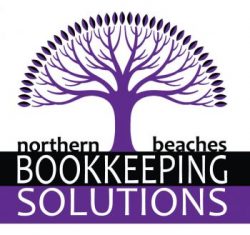Many small business owners think bookkeeping is only necessary for large companies with complex financials, but that couldn’t be further from the truth. Bookkeeping is essential for businesses of all sizes, from sole traders to expanding enterprises. So, who really needs a bookkeeper? Let’s break it down.
1. Small Business Owners
Even the smallest businesses can benefit from having a bookkeeper. Keeping accurate financial records helps you track cash flow, monitor expenses, and prepare for tax time. By hiring a bookkeeper, you can focus on running your business while they handle the numbers.
2. Freelancers and Contractors
Freelancers often juggle multiple clients, projects, and income streams. A bookkeeper can help you organise your finances, track payments, and ensure you’re ready for tax season without the stress of last-minute calculations.
3. Startups and Growing Businesses
Startups typically have tight budgets, but investing in a bookkeeper can pay off in the long run. Accurate records make it easier to secure funding, forecast cash flow, and make data-driven decisions as your business scales.
4. Businesses Handling Payroll
If your business has employees, managing payroll can become complex quickly. A bookkeeper ensures payroll is calculated accurately, taxes are withheld correctly, and payments are processed on time, reducing the risk of costly mistakes.
5. Companies with Inventory
Retailers, wholesalers, and manufacturing businesses often need to track inventory levels, purchase orders, and cost of goods sold. A bookkeeper can keep these records organised and up-to-date, making it easier to monitor stock and calculate profit margins.
6. Seasonal Businesses
For businesses that experience fluctuating income throughout the year, such as tourism or retail, a bookkeeper can help you manage cash flow during peak and off-peak seasons, ensuring you’re prepared for slower periods.
7. Sole Traders and Sole Proprietors
Even if you’re a one-person operation, keeping accurate financial records is crucial. A bookkeeper can help you track income, expenses, and deductions, so you’re well-prepared when tax time rolls around.
8. Businesses Planning for Growth
If you’re planning to apply for loans, seek investors, or expand your operations, having detailed financial records is vital. A bookkeeper can provide accurate reports and financial statements to support your growth plans.
Conclusion:
Bookkeeping isn’t just for big businesses. In fact, having a bookkeeper can be even more valuable for small businesses, freelancers, and sole traders. By keeping your financial records organised and accurate, you can make better business decisions, avoid costly mistakes, and focus on what you do best — growing your business.
